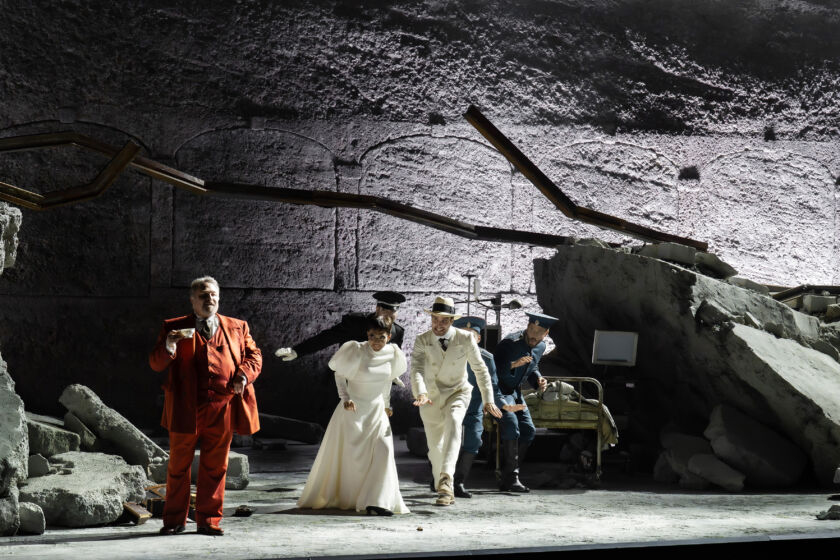Three Sisters
Evgeny Titov’s first opera production in Salzburg is dedicated an undisputed highlight of contemporary musical theatre: for his opera Three Sisters, based on Chekhov’s eponymous play, Peter Eötvös wrote emotionally captivating music which will be brought to life by 13 soloists of the Klangforum Vienna Orchestra under Maxime Pascal’s baton.

„My music is theatre music“, the Hungarian composer Peter Eötvös stated in an interview in 1994 – at a time when he had not written any stage works yet, with the exception of two short, experimental chamber operas in the early 1970s. The statement reveals how strongly his instrumental pieces were influenced by questions of staging and dramaturgy, and how important the concept of music as gesture or dialogue was to him. Thus, the work on Three Sisters, his first evening-length opera which he began composing in 1995, took Eötvös into uncharted territory – for which he was predestined. Its world premiere in Lyon in 1998 brought his international breakthrough as an opera composer. The work has kept its place in the repertoire, and Eötvös remained in thrall to the genre: by the time of his death in March 2024, he had created nine further operas.
To Eötvös, the “greatest virtue of opera” was “enabling profound inner identification with its characters”. He therefore described his output as “music which always seeks a dialogue with the audience, looking to trigger emotional reactions in them”. Three Sisters proves that this goal in no way precluded a novel narrative approach. Instead of following the linear chronology of Chekhov’s drama, Eötvös separated the libretto into three “sequences”, each of which focuses on a different main character: the two younger Prosorov sisters Irina and Masha, and (in the central sequence) their brother Andrey. Three times, we follow the chain of events, starting at the beginning every time – but from three totally different perspectives, recounted as profoundly personal experiences. Eötvös took Chekhov’s epilogue as the prologue to his opera; the director Evgeny Titov therefore considers the three sequences to be memories: “These characters are approaching the end, their life seems past, and questions arise in their minds: What was all that about, actually? Why do we have to suffer so much? What is the meaning of all this?”
Three Sisters poses the question of a fulfilled existence by showing people far removed from such an existence: the Prosorov family and the soldiers garrisoned in their provincial town are dominated almost without exception by feelings of emptiness, dissatisfaction, pain, loneliness and stagnancy. “The piece illustrates the chasm between what we wish for and what actually happens,” says Titov, “the chasm between hope and reality – until perhaps hope also vanishes, making way for resignation.”
Eötvös’ self-concept as a musical dramatist meant that he considered “emphasizing the inherent drama” to be “the goal of all the musical means employed in the piece”. This applies to sound colours too: each figure has a certain instrument assigned to them – Irina, for example, has the oboe, Masha the clarinet and Olga the flute. These instruments are part of the 18-piece ensemble in the orchestra pit, describing the characters and their personal relationships; another orchestra behind the stage enables more powerful sound effects, for example the scene of the fire that consumes everything it touches. The influence of Japanese theatre is noticeable in Eötvös’ unusual decision to cast the female roles with male singers: he felt that because this added an element of abstraction, the gender-neutral countertenor voices of the three sisters would not limit the possibilities of identification, but rather increase them. Thus, Eötvös turned the elements that impressed him about Chekhov’s play into palpable experiences: “Each of these characters bears an immeasurable, almost unfathomable world within them.”
Christian Arseni
First published in the Festival insert of Salzburger Nachrichten
